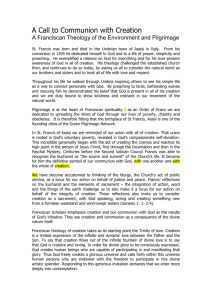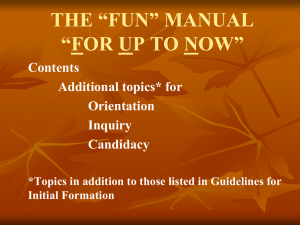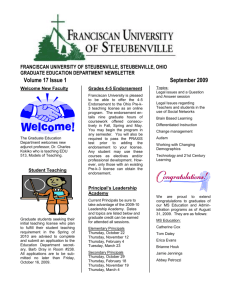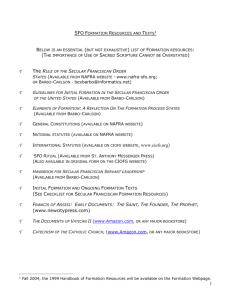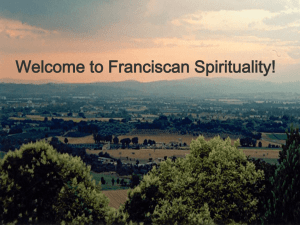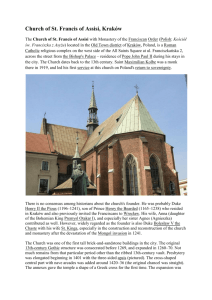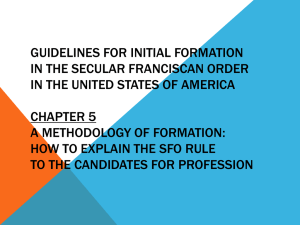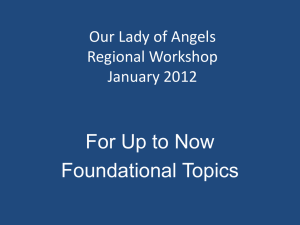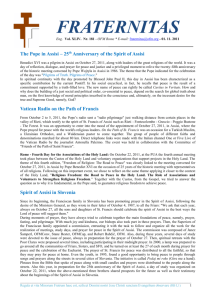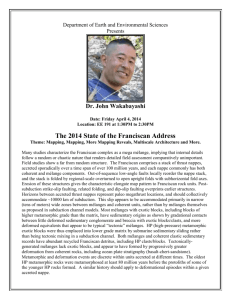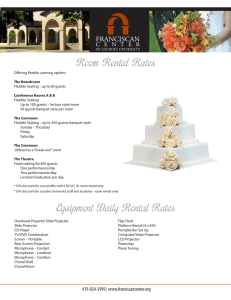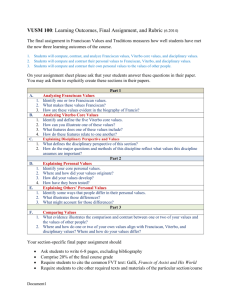the franciscan intellectual tradition
advertisement
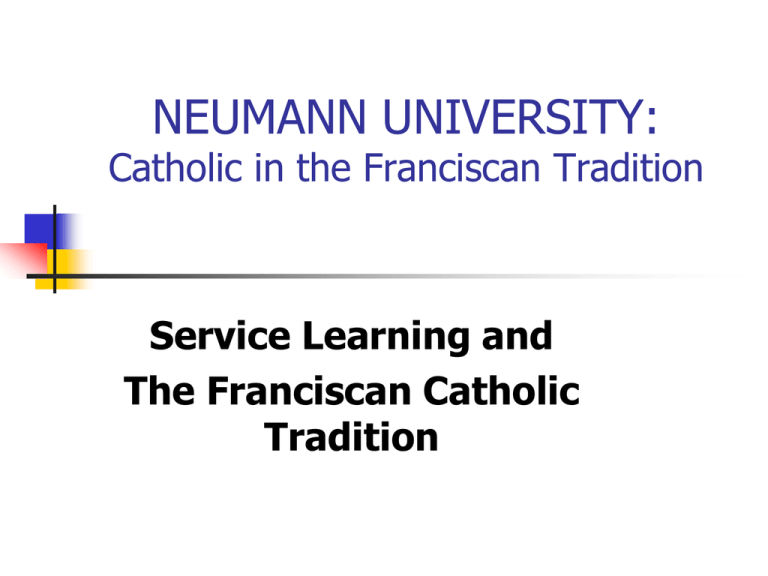
NEUMANN UNIVERSITY: Catholic in the Franciscan Tradition Service Learning and The Franciscan Catholic Tradition A Tradition Develops Persons have ideas Persons begin to discuss and share their ideas Groups circulate the ideas (a movement may form) Ideas are taught and practiced The Franciscan Philosophical and Theological Tradition First they lived it; then they wrote it. Godet-Calogeras Vernacular theologians/ philosophers Historical Context Europe in the Middle Ages Collapse of feudal system Commercial revolution Rise of merchant class Majores and minores War between Perugia and Assisi Crusades Violence and persecution Social Context Medieval Italy developed rituals of exclusion to protect itself economically and culturally from the threat of the Other: Lepers, heretics, Jews and Muslims, male homosexuals, … Whom does our society exclude? Francis Bernardone 1181 1198 1202 1205 1207 1209 1219 1225 1226 - Birth – Rocca Maggiore – War between Perugia and Assisi – Spoleto Dream; San Damiano – Leper – Gospel Rule – 5th Crusade; meeting with Sultan – Canticle of Creation - Death San Damiano Cross Humility of the Incarnation – reverence for all created beings, especially the least Love of the Passion – love and service Love has a human Face… Embrace of the Leper Francis and the Wolf of Gubbio Encounter with the Sultan Contradicted attitude toward the Crusades Demonstrated respect for the religion and culture of the Other Crossed boundaries to embrace a brother Affected beliefs and teachings Canticle of Creation All is Gift from a Good God: Gratitude and Care Interconnectedness: Brother and Sister Interdependence: unity in diversity Franciscan Worldview God is a Community of Love God shares Love through Creation and Incarnation All creatures are brothers and sisters Implications of Franciscan Worldview Dignity of the human person Goodness of Creation Family of sisters and brothers All is Gift from a generous God Elements of the Franciscan Tradition 1. 2. 3. 4. Inclusive – all cultures, all peoples Critical – of injustices Prophetic – moving beyond Practical – an everyday approach Counter-cultural Stance Movement toward people on the margins Belief that every creature is a sister or brother Peace and reconciliation in the face of hatred Rebuilding of Church and Society The Franciscan Tradition Today “I have done what was mine to do; may God teach you what you are to do.” Francis of Assisi REFLECTION in light of the Franciscan Tradition How has this service experience led to a deeper understanding of the uniqueness and dignity of other people, of the environment? How did this service experience improve the life of others? Through this experience what have I learned about personal integrity, corporate integrity, integrity as the foundation of community? How can my work and volunteer activities contribute to the creation of more healthy and wholesome communities and to the transformation of society? How has this experience helped me to understand the challenges persons face in trying to live healthy, wholesome lives? How does the experience invite me to use the gifts and resources that I have to promote a more just and peaceful world? With what Franciscan story can I compare this service experience? Explain.
